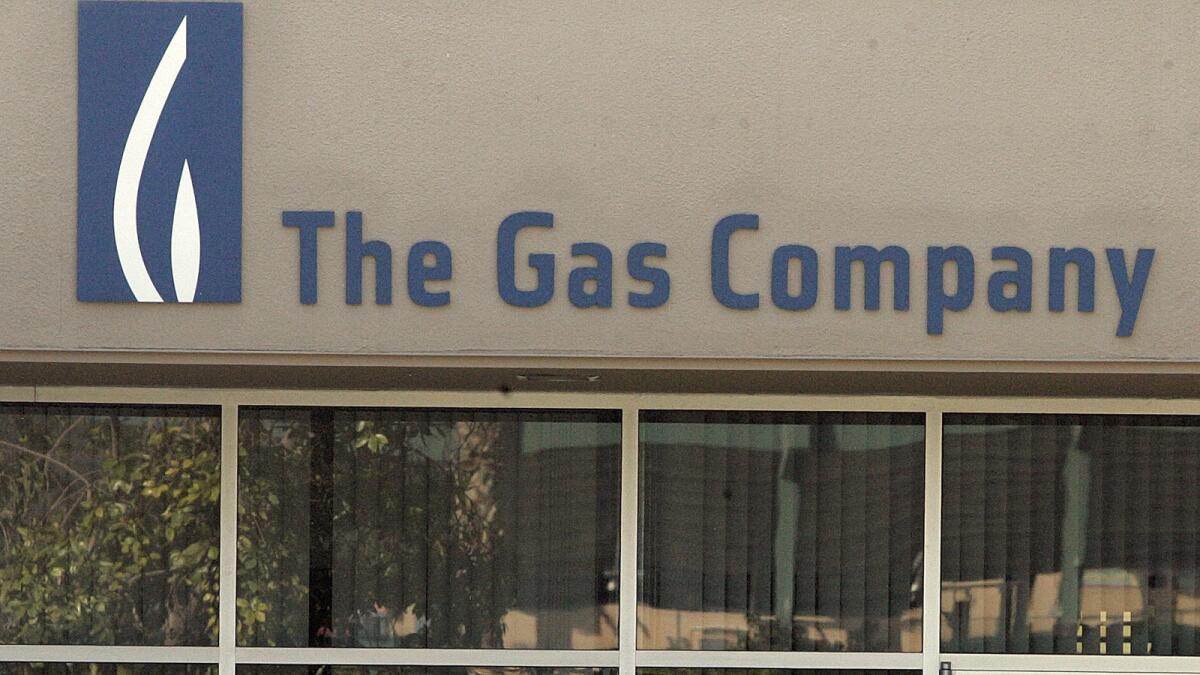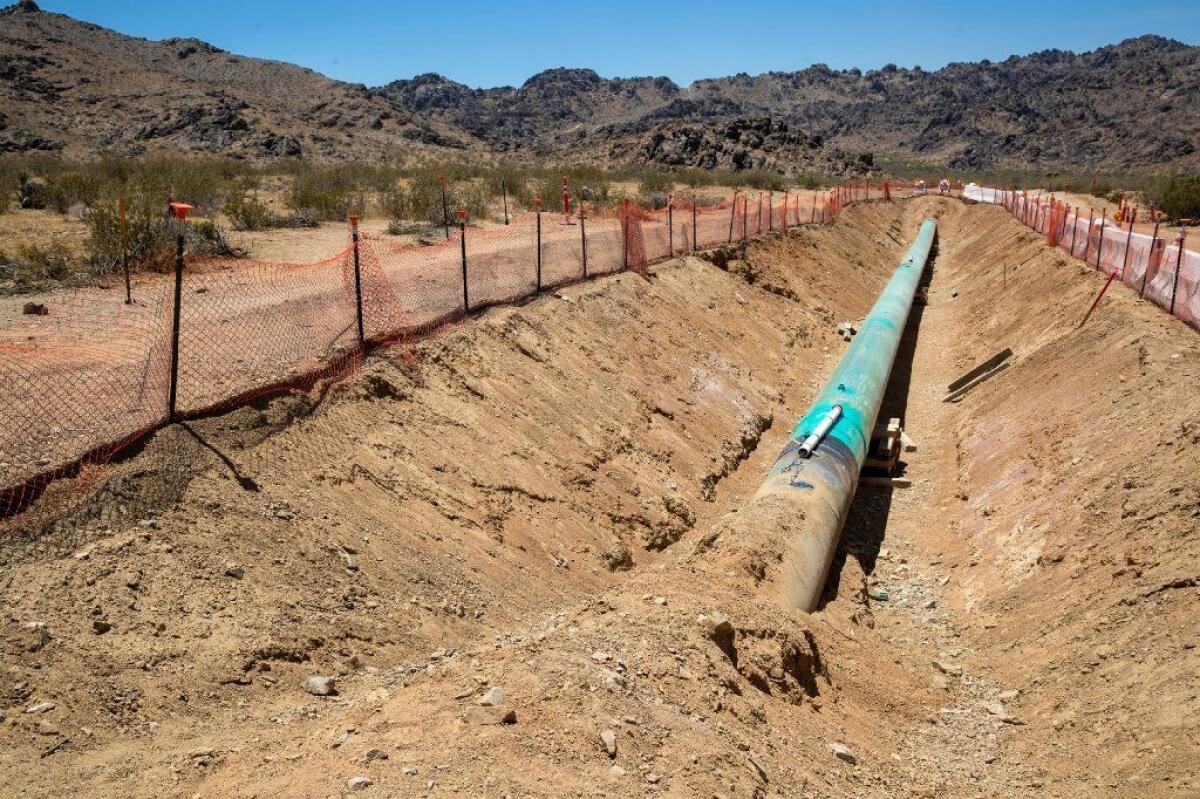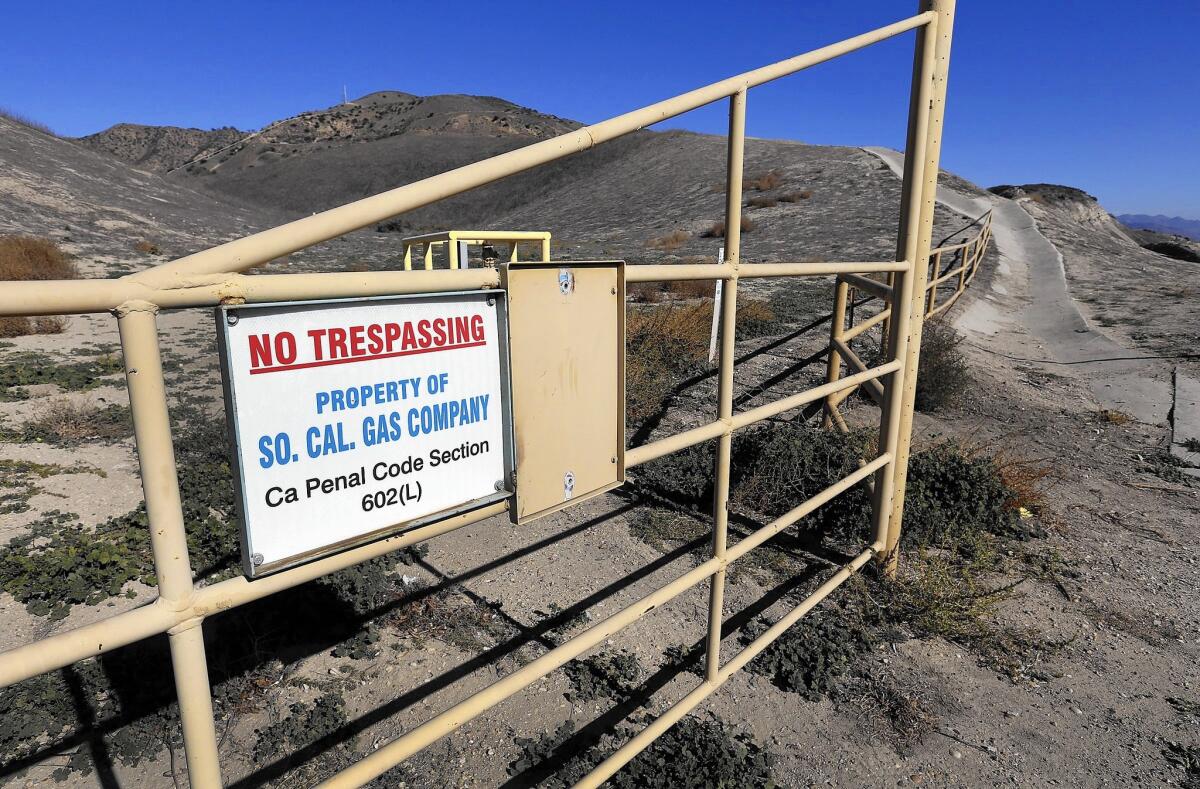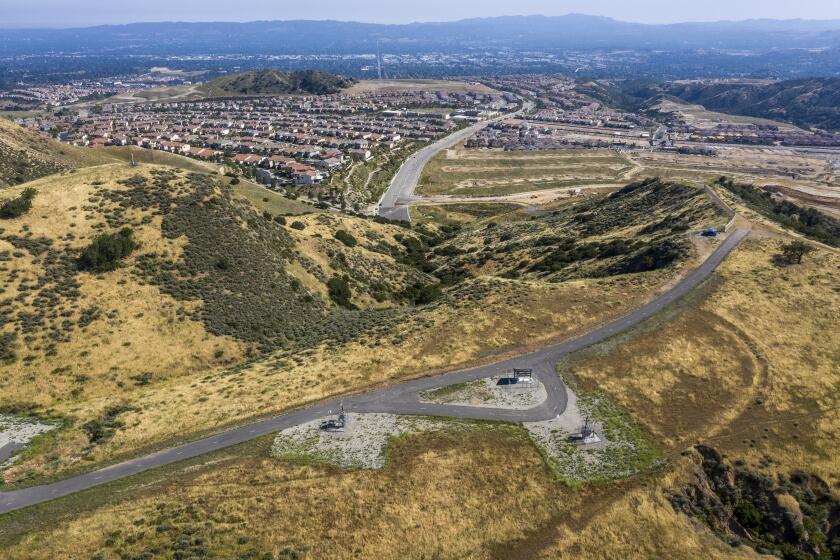SoCalGas should be fined $255 million for fighting climate action, watchdog says

The consumer watchdog arm of the California Public Utilities Commission has recommended the nation’s largest gas company be fined $255 million for trying to block energy efficiency rules and local gas bans, actions critics say were inappropriately funded by ratepayer dollars and designed to subvert efforts to fight climate change.
Southern California Gas Co. said that it did nothing wrong and that no fines are warranted. The monopoly utility company, a subsidiary of San Diego-based Sempra Energy, said it has a strong track record supporting energy efficiency and has opposed only a handful of rules that would raise energy costs for its customers.
As the climate crisis produces bigger wildfires and hotter heat waves, the company’s actions have become a political flashpoint.
In a letter to SoCalGas Chief Executive Scott Drury last week, Sen. Dianne Feinstein (D-Calif.) and Rep. Nanette Barragán (D-San Pedro) said actions uncovered by California’s consumer watchdog “paint a clear and deeply concerning portrait of SoCalGas’ attempts to systematically undermine greenhouse gas reduction targets.”
The company’s efforts are also part of a nationwide debate over the future of natural gas.
Your guide to our clean energy future
Get our Boiling Point newsletter for the latest on the power sector, water wars and more — and what they mean for California.
You may occasionally receive promotional content from the Los Angeles Times.
The fuel burns more cleanly than coal and has played a big role in reducing U.S. emissions, but climate activists argue it must now be phased out if humanity is to avoid the worst effects of rising temperatures. The debate will only intensify if Joe Biden, who campaigned on a platform of 100% clean electricity by 2035, maintains his lead over President Trump in the election.
“Southern California Gas customers have invested in infrastructure that today provides affordable, reliable energy to 22 million people. That infrastructure is, and will continue to be, an indispensable tool in the transition to an integrated, renewable-powered energy system,” the company said in a series of tweets responding to the letter from Feinstein and Barragán.
Clean energy advocates disagree. And they’ve found a powerful ally in California’s Public Advocates Office, which for three years has been scrutinizing the gas company’s use of ratepayer dollars.
In a briefing filed Thursday, the consumer watchdog detailed several actions by SoCalGas that it said warrant significant fines, including efforts to block rules requiring more efficient water heaters and furnaces and advocacy against local building codes that limit gas hookups. All those actions were funded at least in part by the company’s 22 million customers, the watchdog said.
In California, monopoly utilities can spend shareholder money in any way they want. But they’re required to spend ratepayer money exclusively on programs that benefit ratepayers, such as efficiency programs that help customers reduce energy use.
“SoCalGas’ blatant violations of Commission decisions that undermine state energy, environmental, and public health policies and goals are calculated business decisions,” the briefing said. “SoCalGas is willing to make these decisions because it views the benefits of preserving its profitability as outweighing the risks of possible repercussions imposed by the Commission.”

The Public Advocates Office cited 10 different actions dating back to 2014, recommending fines as high as $75,000 a day that collectively add up to $255.3 million. The watchdog said it could have requested larger penalties under state law but reduced its recommendations by 25% because SoCalGas didn’t cause “direct and immediate physical harm.”
The lack of physical harm doesn’t change the seriousness of the company’s actions, the watchdog said. It calculated that a proposed federal efficiency standard for gas furnaces — which was opposed by SoCalGas and ultimately not implemented by the Trump administration — would have prevented between $259 million and $1.2 billion a year in climate damage.
Southern California Gas is engaged in a wide-ranging campaign to preserve the role of its pipelines in powering society.
Gas company spokesman Chris Gilbride said in an email that the Public Advocates Office’s claims “are demonstrably wrong and their request for penalties does not have merit. SoCalGas should not be discouraged from raising concerns about the affordability of proposed rules that would disproportionately drive up costs for our customers.”
In its own briefing filed Thursday to the Public Utilities Commission, SoCalGas said it has a “long history of supporting energy efficiency in California, of prudent stewardship of ratepayer funds, and of achieving aggressive environmental goals of the State of California.” The company said the actions outlined by the consumer watchdog are “only a small part” of its overall work on energy efficiency, which it said has helped to avert nearly 3 million metric tons of carbon dioxide emissions over two decades.
It’s up to the five members of the Public Utilities Commission to decide whether to fine SoCalGas and how large the fine should be. The Public Advocates Office is an independent watchdog organization within the utilities commission.
SoCalGas also argued that it’s required to support efficiency rules only if they would reduce costs for customers, which, in the utility’s estimation, the proposed furnace rule and several others would not. The company said it has “the right and responsibility to study and share its perspectives on rules and regulations that impact its customers.”
The Public Advocates Office and the Sierra Club, which has at times partnered with the watchdog in pressing for scrutiny of SoCalGas, have cited internal documents as evidence the gas company is looking out for its bottom line.
A 2014 presentation prepared for the utility’s senior management team, for instance, warned that a stricter efficiency standard for gas water heaters could cost the company up to $17 million a year, stating, “We are taking aggressive steps to address the proposed changes.” The same year, a SoCalGas manager emailed officials at an industry trade group about a proposed federal efficiency rule for water heaters, describing a “dilemma” over how to balance the demands of her “two masters.”
“My dilemma is that I also have to play nice in the sandbox here on Mars because we have mandates to move this stuff forward based on funding so in effect, I live [in] two worlds. I would love to get some feedback from you on good ways for me to bridge between my two masters,” the gas company manager wrote.
SoCalGas countered that the Public Advocates Office and the Sierra Club are “relying on selected quotes contained in company emails” and ignoring the parts of those documents that show the gas company looking out for customers’ best interests.

More broadly, the company has argued it wants to help California fight climate change, just through different means than those preferred by activists. Instead of encouraging or requiring people to switch from gas to electric heating and cooking, SoCalGas has proposed replacing some of the natural gas that runs through its pipelines with cleaner fuels such as renewable gas or hydrogen.
“SoCalGas has been and will continue to be a partner in reaching California’s ambitious climate goals,” the utility wrote this week.
Critics are skeptical.
This summer, SoCalGas sued the California Energy Commission, arguing that officials are flouting a law requiring them to consider the role gas might play in reducing emissions. The Public Advocates Office discovered last year that the company used ratepayer funds to help create a self-styled grass-roots advocacy group called Californians for Balanced Energy Solutions, although it later agreed to charge shareholders for the work instead. SoCalGas also funds national trade groups that advocate gas use.
Gov. Gavin Newsom says he’s committed to shutting down Aliso Canyon. But its use has skyrocketed since his election.
In another ongoing dispute, utilities commission staff last month advised the five-member commission to force SoCalGas to respond to a subpoena ordering the company to give the consumer watchdog access to its accounting system. Commission staff rejected a SoCalGas argument that its 1st Amendment rights to free speech and free association were being violated.
SoCalGas made a similar argument this week to support its case against financial penalties. To punish the company for opposing energy efficiency rules, SoCalGas wrote, “has potential First Amendment implications for prohibiting a utility’s free speech.”








